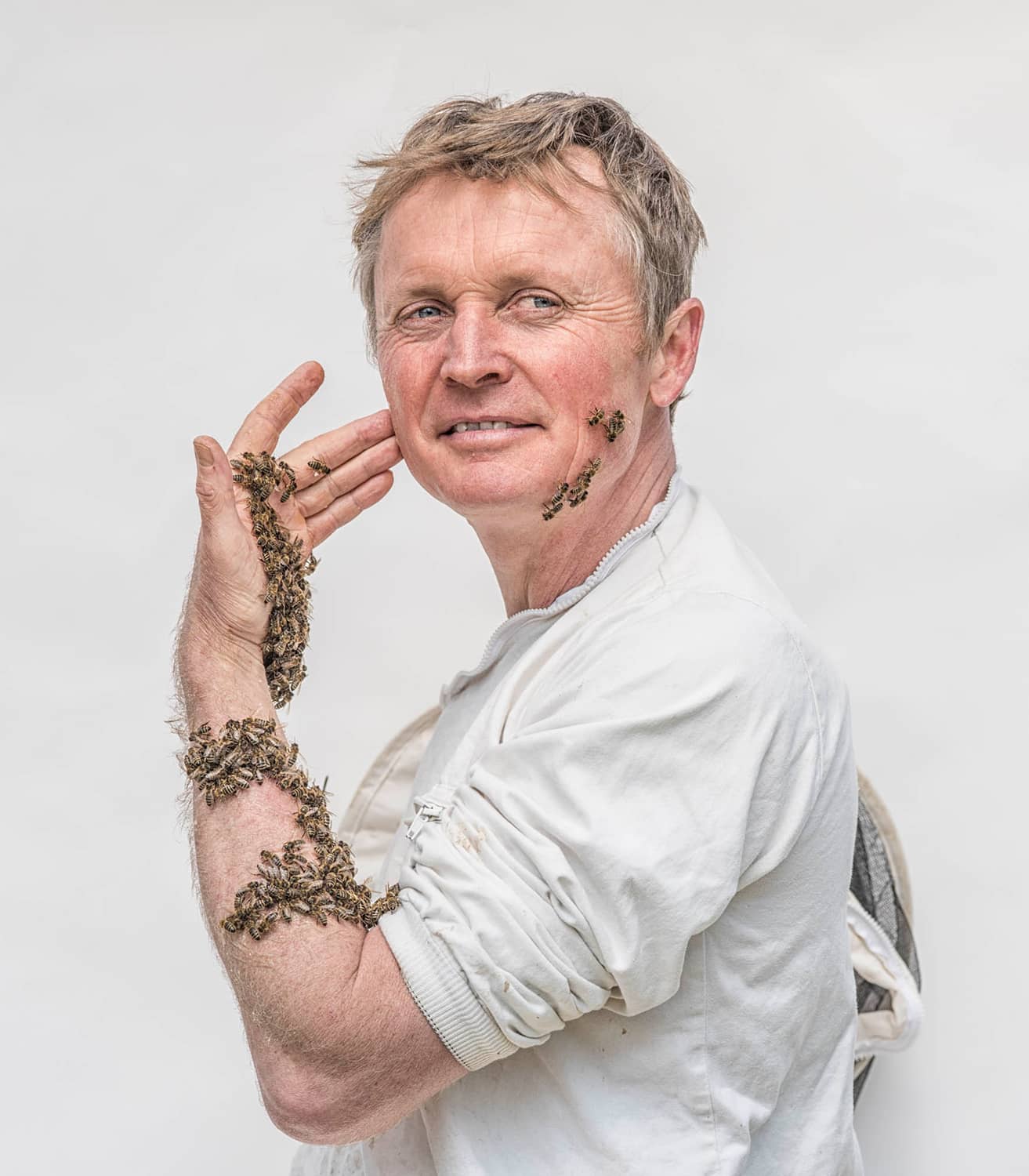You reap only later
FOTOS: Mirco Taliercio
TEXT: Uschi Korda
ARTICLE PUBLISHED
S MAGAZIN | ISSUE 12
ORDER S MAGAZIN
In Vienna’s Donaustadt district, Evi and Mario Bach have created a small vegetable and herb paradise. Slowly but surely, their nursery has grown from an insiders’ tip into the go-to address for outstanding quality.
FOTOS: Mirco Taliercio
TEXT: Uschi Korda
ARTICLE PUBLISHED
S MAGAZIN | ISSUE 12
ORDER S MAGAZIN
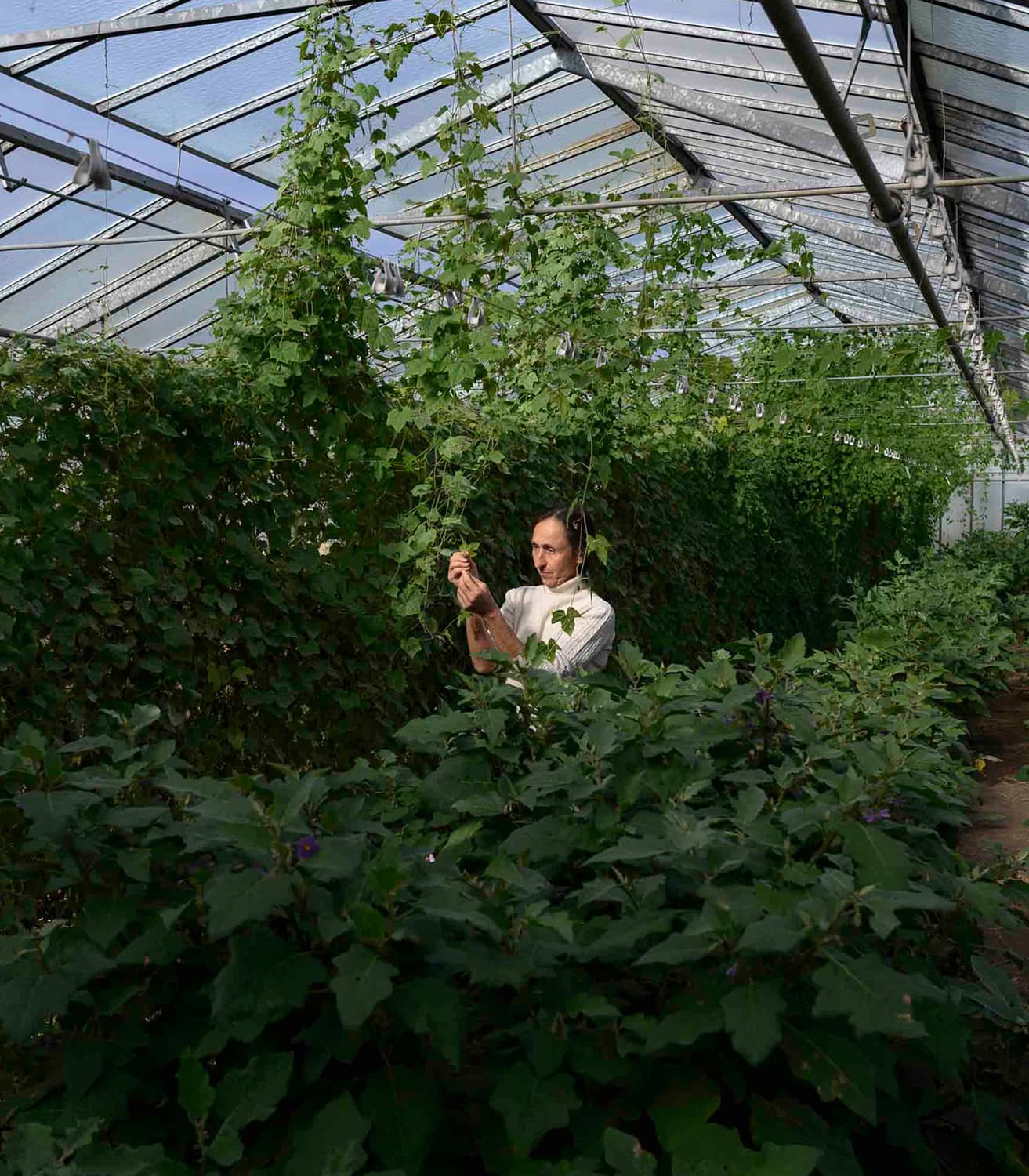
It is something of an expedition. The Viennese who crosses the Danube heading northeast, finds herself in unknown territory. Anyone who doesn’t live here, normally only ventures as far as the Old Danube or to Lobau, no further. Further afield, growing business parks expand to the flat horizon, criss-crossed by multi-lane carriageways, their monotony every now and then relieved by a roundabout. Where the outskirts of the city loosely spill into the Lower Austrian Weinviertel, where small settlements of single family homes dot the fields, with names like Peony, Orchid or Milfoil Lane.
If you have no sense of direction, this alone would tell you that you are on the right path, especially when looking for Vienna’s most extraordinary nursery. Eveline and Mario Bach reside in Transdanubia, their magic garden lies in Hänischgasse, named after – and this is definitely advanced knowledge of Vienna – Aloys Hänisch (1866–1937), a co-founder of the Vienna Secession; Hänisch, a painter, specialised in pictures of gardens and flowers.
En route, more and more greenhouses appear on the scene; those belonging to the Bachs seem somewhat nostalgic. They nestle, gracefully, as if ashamed, dwarfed by the outsized high-tech installations around them which provide eternal season for tomatoes. High-tech is certainly not the main factor in the Bachs’ oasis of vegetables and herbs. Although the Bachs do not reject technology; they are not stuck in a bygone era. However, in their nursery, nature remains the determining factor.
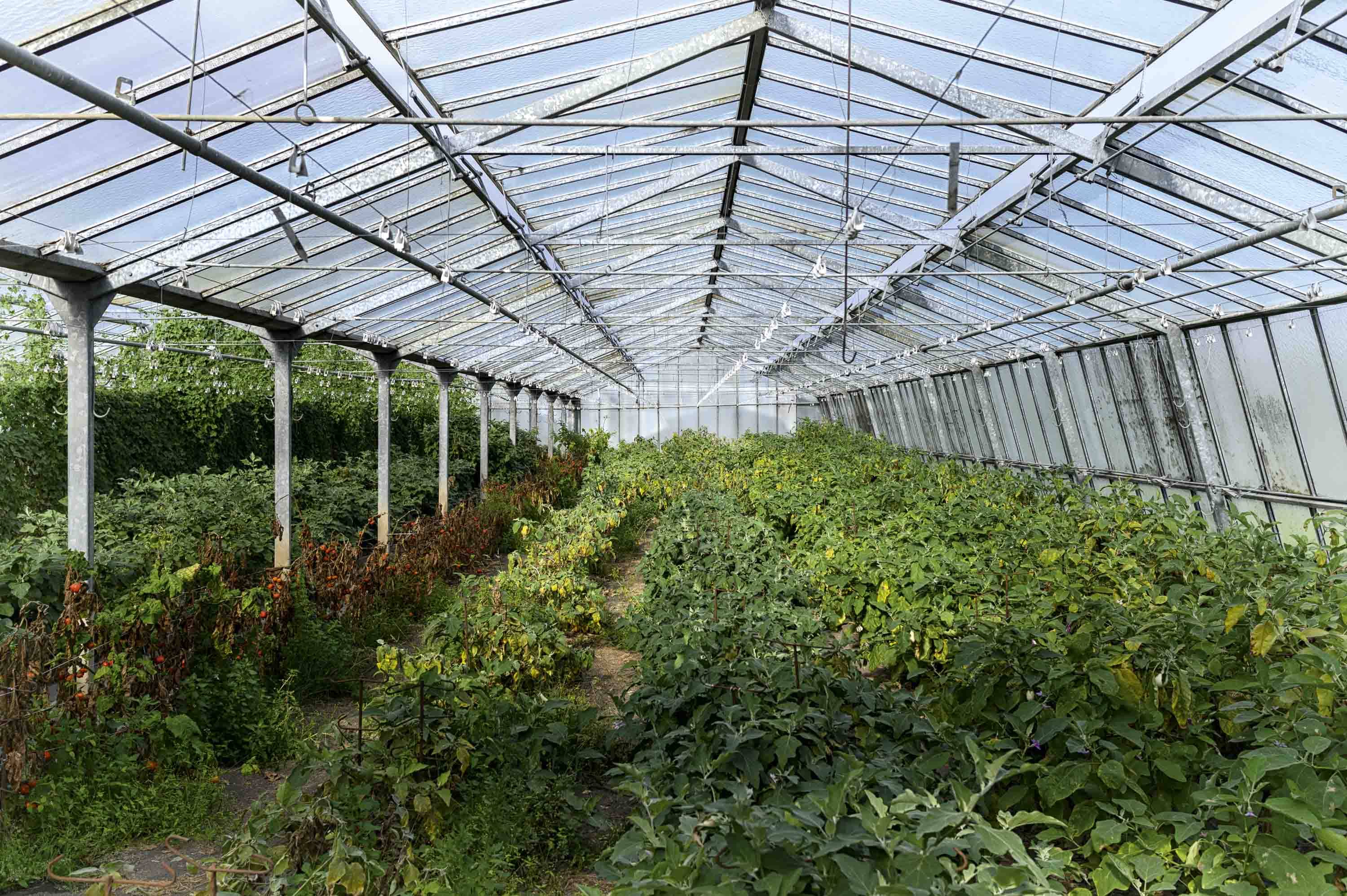
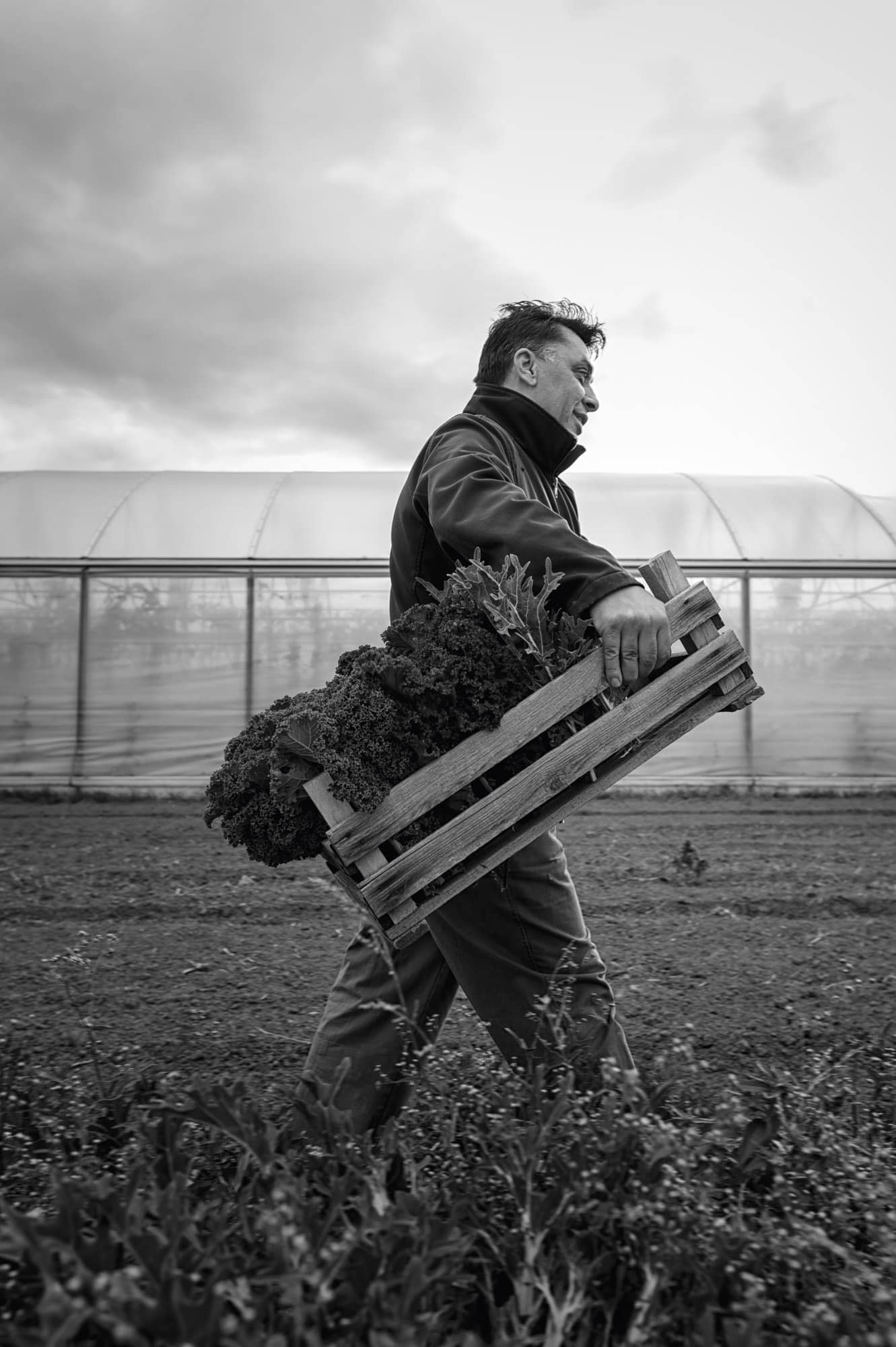
If nothing grows, there is nothing to sell or buy, says Mario Bach matter-of-factly, scowling in the manner of a Viennese market vendor faced with a customer demanding, say, spaghetti beans on the spot, when they are out of season. The Bachs plant and harvest in strict accordance with the seasons, although they have managed to prolong them for certain varieties – by natural means. After years of experimenting, researching, and learning by doing, there are fresh vegetables and herbs from the end of March until the end of October, and then it ends. Nature rests in winter, and the soil in the Bachs’ nursery rests as well. The two gardeners take it somewhat easier then; emphasis on the -er. For now, the seed for the next year has to be sown and planted; this does not happen by itself.
Eveline, called Evi by everyone, and Mario Bach and their two employees work their 800 square metres of land and the greenhouses with roughly the same area. It is not much; certainly not enough land to supply the trade: but this does not interest the Bachs. The small size of their nursery allows them to look after every aubergine, cucumber, bean, or courgette, every leaf of lettuce or mint, from its germination to the harvest. This kind of quality in addition to a paradisical variety of produce, makes the Bach Nursery the place to go to for gourmet chefs in Austria’s East. It is an insiders’ tip – it is many things, but not secret anymore.
“We never made a big fuss or drama”, says Mario Bach, and while there is an undertone of the Viennese grouch in his voice, you can definitely hear the proverbial Viennese “golden heart”. True to form, he is a typical Viennese, he says, he was born here, raised by a Greek mother and a Viennese father. A perfect mix, as has been traditional in this city for centuries.
The nurseries near the Danube have an equally long and ongoing tradition, they supply the city with fresh fruit and veg, from the boroughs of Simmering, Jedlesee, and Hirschstetten. Evi Bach’s ancestors arrived in the capital from Waldviertel in Lower Austria; they founded their nursery in Hirschstetten in 1899. It was a craft you could live on, says Evi. While she gently plucks a whitered leaf off the winged beans, she spots a small ripe aubergine in another bed. “Heinz Reitbauer will like this”, she says, as her mobile rings again: Another chef wants to place his order.
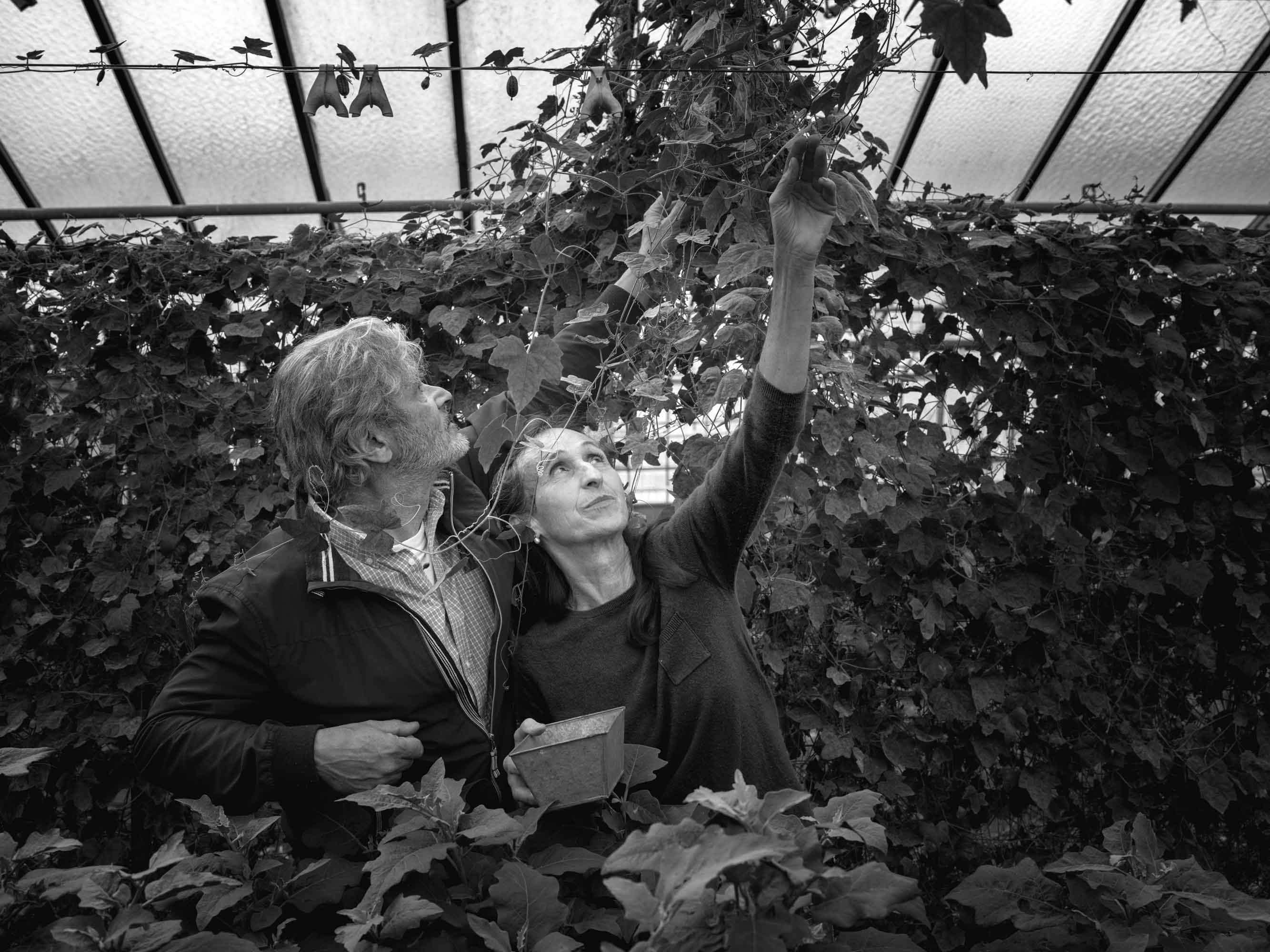
We meander through the greenhouses, where autumn has well and truly set in. On the floor between the rows of different plants lie the irrigation pipes; the green of the last months has faded. Irrigation is meted out in drops and by hand, as each plant needs a different amount of water. No automated software could handle that.
“I love going through these rows in summer, in the evening, when everything is lush and green and it is still light,” says Evi, “it gives me energy.” She could not deny her love of gardening if she tried. You sense that she knows each plant in her empire, she knows in which corner she might still find ripe specimens of an exotic cucumber variety the size of a fingertip, and which of the dried beans might yield the best seed.
She quite likely never had a choice to become anything but a gardener. At 15, she started her apprenticeship and began to slowly grow into her parents’ business. In 1946, her father was one of the founders of LGV, an agricultural cooperative of over 1.000 gardeners in Vienna. For economic reasons, he opted for large-scale cultivation of only a few kinds of vegetables. “Not my cup of tea”, says Evi, adding that her own history has much to do with the development and growth of the city.
In the 1970s, Vienna grew in the North and in the East. As young families started to arrive, demand for fresh vegetables rose, as did the desire to buy directly from the producers. “Now that was to my liking”, says Evi, and as more and more local restaurateurs and innkeepers came, she expanded her range and worked on improving the quality. Away from mass production, towards something singular, special. Her parents had misgivings about their daughter’s move towards the small-scale, but Evi stuck to her guns.
Austrian herb specialist Miriam Wiegele’s expertise fuelled Evi’s own enthusiasm for herbs. Meanwhile, husband Mario, who graduated from an HTL, an Austrian Technical College, came up with technical improvements, such as a tinfoil tunnel for courgettes, which prolongs their harvest time until autumn and which keeps the blossoms tender and clean – only these blossoms are used in the Steirereck Kitchen.
I love going through these rows in summer, in the evening, when everything is lush and green and it is still light. It gives me energy.
Evi Bach
Over the course of the years, their love of nature and curiosity made Evi and Mario Bach collect plants and seeds from all over the world. At home, they planted everything from Mexican yerba santa (Mexican pepperleaf, Vera Cruz pepper) to Thai water cabbage, from rosette bok choy to Egyptian spinach, to see how these plants would fare in Austria. Not everything thrived, and some ideas were simply uneconomical, such as growing green beans outdoors, or muskmelons in a greenhouse, or growing physalis, which fell victim to spider mites, in spite of non-chemical pest control. “This is what you learn for life in a nursery”, says Mario, “sometimes things aren’t possible.”
Among the first to notice the wondrous diversity produced by the Bach Nursery was legendary gourmet chef Meinrad Neunkirchner, known as master of essences, who all his life brought out the best in herbs and vegetables. This would have been about twenty years ago, the Bachs don’t recall the exact date. Today, everyone looking for something special or unusual in gourmet cuisine knows to call the Bachs first. If they cannot help, no one can.
We are now between the greenhouses, we are looking over the harvested beds and fields to the far horizon. “It was the right decision”, says Evi, “to specialise and remain small.” This gave them more freedom, the limits were only imposed by nature herself. And by the city, which has started growing again in the last few years and which has needed more of the Bachs’ land in Hirschstetten. So two years ago, the nursery moved further to the outskirts, to Breitenlee, where the family has owned land since the 1960s.
“We weren’t sure whether we should uproot ourselves at our age”, Mario says, who at 59 certainly does not look ready to sit still on a bench and dream into the sunset. Quite the reverse, he combined all his technical knowledge and his years of experience to build a new, environmentally sound nursery complex complete with solar energy, pellets, and mechanical irrigation systems. Naturally, everything at Bach’s is organic, although not officially certified, because there is no time for the administrative side.
What time there is, is spent on the vegetables, the herbs, and the edible blossoms, which have become a passion of Evi’s. It has grown cold now, mist is wafting from the Danube. “It’s time”, say Evi and Mario Bach, “there is still much to do.” After all, they have to begin preparations for 2020. “This is another thing you can learn for life from gardening”, Mario says by way of farewell, “you reap only later.” And that includes success.
Stories
Stories of people driven by love and passion for their craft.
The articles can be found in the current 'S Magazine'. Every four months you can find new stories here.
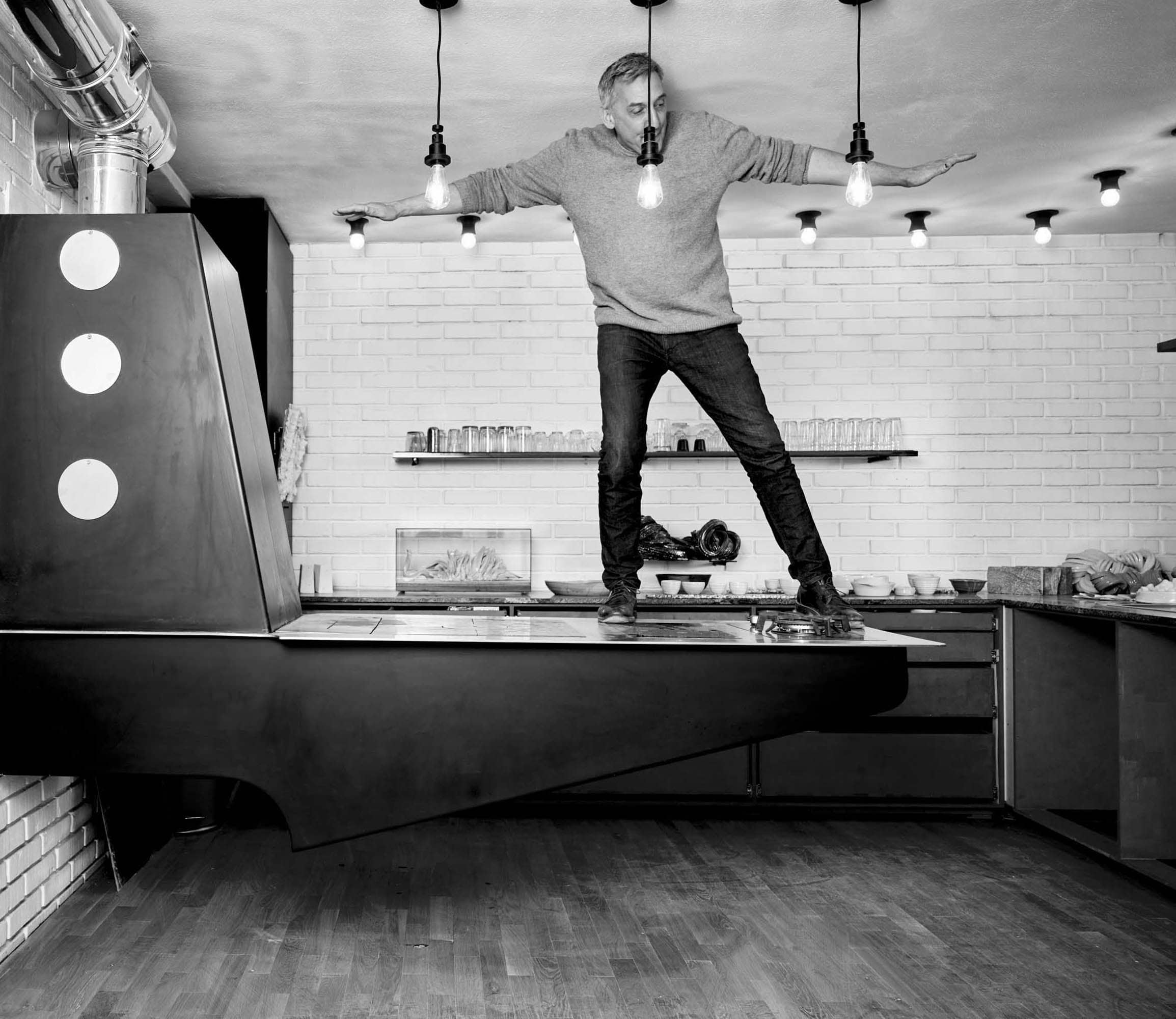
ISSUE 14
The Man who gets all hot for fire
